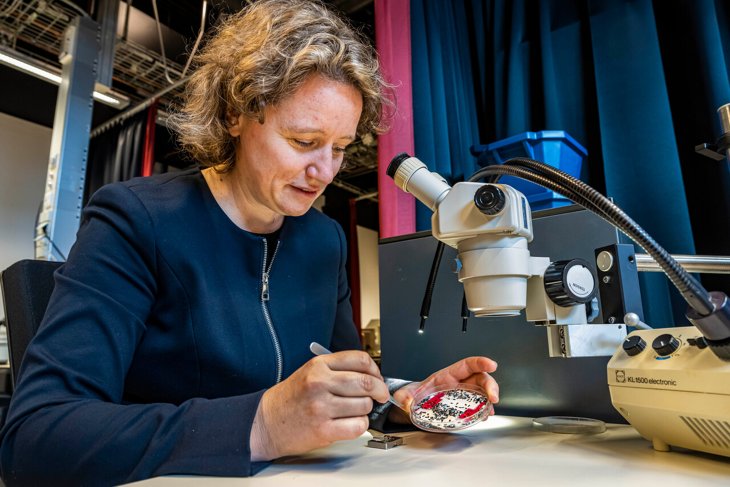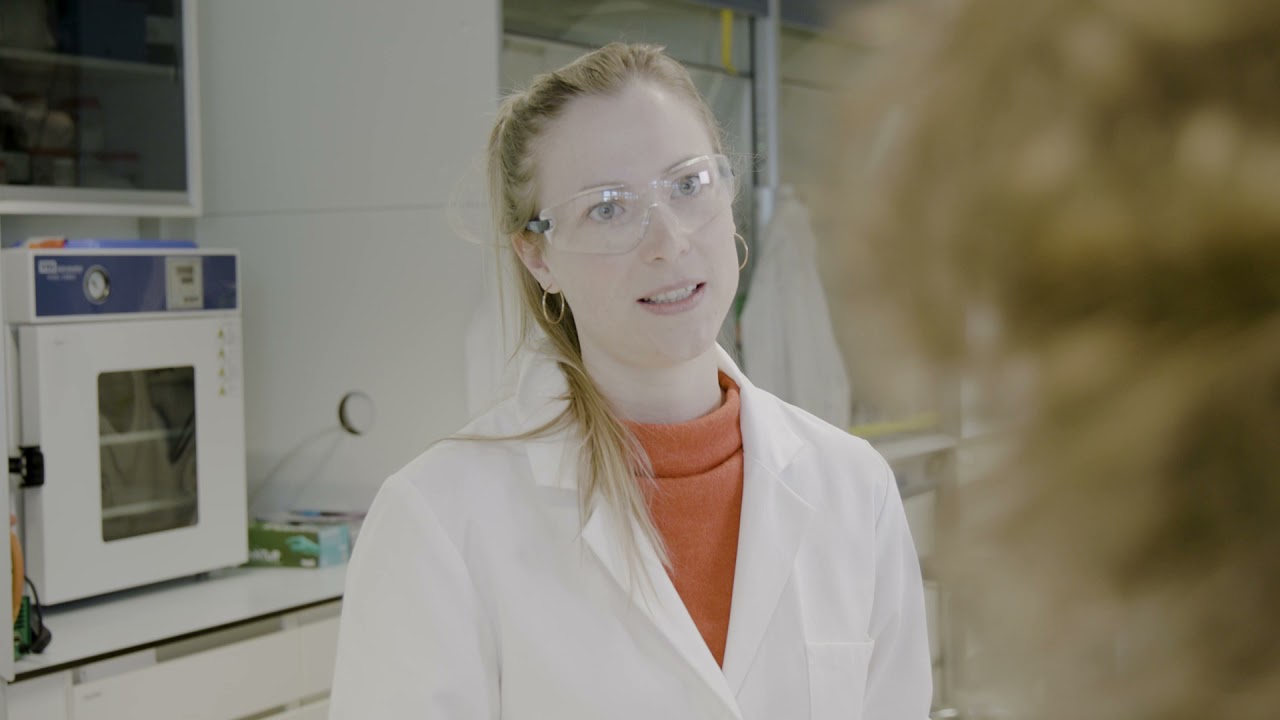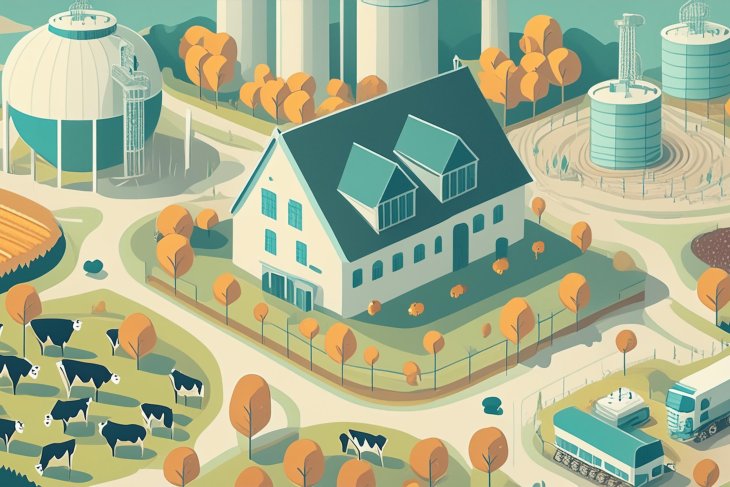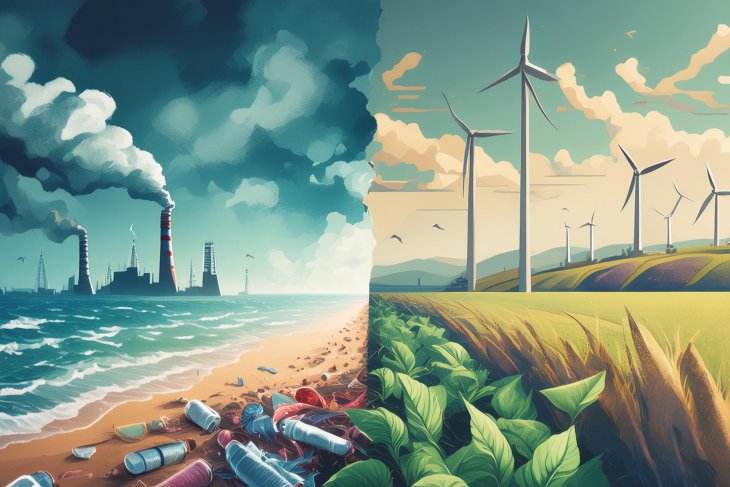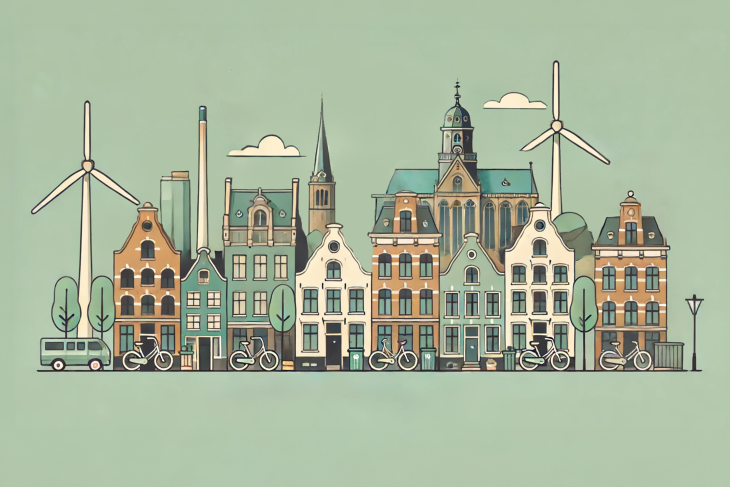The growing world population is causing raw materials to become increasingly scarce. Therefore, the Netherlands has set the goal of having a circular economy in which all raw materials are reusable by 2050. However, this requires new separation technologies that can extract valuable materials from streams that would otherwise have ended up as waste.
Electric-powered separation technologies
Sissi de Beer's research contributes to this. In the NWO-funded project ReCoVR (Recovery and Circularity of Valuable Resources), she and her team are developing new materials and coatings for electrically driven separation technologies. These are more energy-efficient, cleaner and more specific than current separation methods. Here, they focus on five application areas: water purification, isolating flavour compounds, recycling chemicals, recovering food products such as sugar and salt, and purifying proteins used in the production of meat substitutes and high-protein dairy products, among others. In the case of the last-mentioned application, the 'biggetjes' (piglets), the famous candy from producer Katja, are a striking example.
Potato: endless possibilities
In this, Sissi works closely with the company Avébe, which processes industrial potatoes. Sissi: "To many, the potato seems a simple crop, but to us, it is a plant-based source with endless possibilities. The potato provides starch, protein and other essential ingredients. These ingredients can be invaluable. Thanks to the potato, we provide more sustainable and healthier solutions and products."
Until recently, the industry only managed to extract starch from potatoes sustainably. The by-product was a watery liquid rich in proteins. "Not until recently the realisation of its value has increased a lot," Sissi says. "Think of its use in vegan cheese, meat substitutes, an alternative to egg, gelatine and now even sweets. At the same time, we have found an alternative and sustainable way to extract those proteins from the liquid. The old method involved solvents and is very harmful to the environment."
Complex
According to Sissi, this breakthrough is an important contribution to achieving a circular economy. "Such a society is, of course, not straightforward. You deal with complex waste streams from which you have to extract specific molecules. Traditional separation methods are often too complicated for this. Moreover, filtering low concentrations of a particular molecule is intensive and therefore costly, which is not interesting for companies. We really need these new kinds of separation techniques to make progress." Sissi and her team's new technique focuses on electricity. "We precisely turn an electric field on or off on a certain matter, to bring certain molecules to the surface. Until now, has been very fundamental and thus far removed from application, but that has changed. Now that we have demonstrated that we can capture certain molecules well and understand how to release them again in a controlled manner, we will work on developing processes to scale up and actually realise products."
Secondary schools
Sissi also involves young people in her research. "We are starting a project at a secondary school, in collaboration with UT's teacher training programme. Students can then make their own sweets, such as macaroons or marshmallows. We teach them how to separate proteins in an environmentally friendly way and then let them make their own sweets from these proteins."
Programme director
Education plays a central role in Sissi's work. "By educating and inspiring the next generation of talent and getting them excited about research, we make the greatest impact," she believes. That's why Sissi decided a few years ago to take on the role of programme director of Applied Physics alongside her work as a researcher. "As programme director, you can have a greater impact on students and teachers, and so far, I've been very happy with that. Together, we can work towards a sustainable future."
